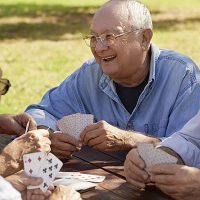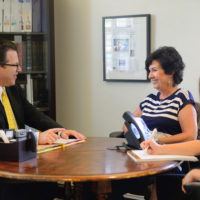The 3 Ways of Paying for Nursing Home or Assisted Living Care
Nursing homes and assisted living facilities can be very expensive but there are ways to make your long-term care dollars stretch. There are three primary methods of paying for nursing homes or assisted living facilities: (1) Private-paying with one’s own dollars; (2) using insurance that covers some or all of the cost of long-term care and (3) Medicaid and/or Veteran’s (VA) benefits.
Private-paying for care often means total indigence. The cost of nursing homes in Southeast Florida ranges from about $6,000 to $12,000 per month. Assisted living facilities are about half the cost of nursing homes but still too much for many to pay for without outliving their savings. Many people spend all of their savings in nursing homes and then have nothing left. Not a very good option!
Long-term care insurance works for some but most people considering nursing home care do not have long-term care insurance or enough and either cannot qualify for the policies or cannot afford the premiums.
This leaves Medicaid and Veteran’s benefits. In Florida, Medicaid pays for almost all nursing homes including the finest of facilities (you sometimes need to know the tricks to getting in!) and Medicaid increasingly covers assisted living facilities as well. But in order to qualify for Medicaid, applicants must be below $2,000 in savings and below $2,022 in income (2010 figures). Elder Law Attorneys can help people ethically and legally convert “countable” savings to “non-countable” savings, so that Elder Law clients can keep their savings and still qualify for Medicaid. This is done not out of greed but out of necessity so that the Elder Law client is not left indigent at the cost of long-term care. In the words of one court, “No agency of the government has any right to complain about the fact that middle-class people confronted with desperate circumstances choose [to do Medicaid asset protection planning] when it is the government itself which has established the rule that poverty is a prerequisite to the receipt of government assistance in the defraying of the costs of ruinously expensive, but absolutely essential medical treatment.”
When trying to decide among Elder Law Attorneys, know that The Florida Bar has already done a lot of homework for you. Any attorney can join The Florida Bar’s Elder Law Section and there are over 1600 members but only under a 100 are certified by The Florida Bar as specialists in Elder Law. These certified specialists do not necessarily cost any more than a normal attorney.
Scott Solkoff of Solkoff Legal, P.A. is a certified specialist in Florida Elder Law, a national author and is frequently quoted in the media on the subject of Elder Law. He may be reached at 561-733-4242 or at www.solkoff.com.











